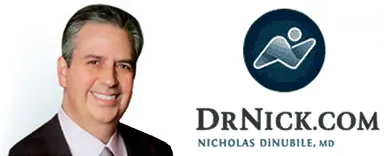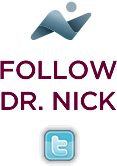“I really learned it all from mothers”
Dr. Benjamin Spock
It’s amazing how often a patient mentions something in passing, something from their own experience about and injury, ailment, or even recovery from a surgery, that rings a little bell in my head that may ultimately change the way I deal with that condition in the future, including the care of other individuals with the same problem.
Medicine is that way. It’s a never-ending learning experience with knowledge and wisdom coming from many sources, including those we are trying to help. I find that if I keep my eyes and ears wide open, my patients will often lead me to better ways to do what I do. Not unlike the business world where many a successful corporation learned by listening to their customers.
For example, when a patient with tennis elbow comes back “cured”, I will ask “what do you think helped the most, the therapy, the medications, or the change in racquet?” They will often give great feedback that over time (and additional similar patients) changes how I treat sore elbows. Sometimes, they will surprise me and say that my stretches didn’t help “but here’s a different way that seems to work better”. If it’s good, I will pass it on.
Years ago, following major knee reconstructive surgery for anterior cruciate ligaments (ACL’s), we as surgeons were very conservative about the recovery. We kept patients on crutches, in casts and the recovery was long and often incomplete. One very astute surgeon realized that the best results were in his most non-compliant patients, they tossed the crutches, removed their own cast and both moved and used the knee much earlier then recommended. We learned from those rogues that we were being too cautious to the detriment of many a knee. When I now do knee ACL reconstructions, the patients have no brace or cast, they are off the crutches in a few days and start therapy almost immediately. The recoveries are rapid and function is fully restored in most instances. Although I don’t recommend ignoring your doctors orders, (and it will get you in trouble more than it will help you) in this instance non-compliant patients and one observant surgeon changed the way we treat a very common problem.
Also, when physicians become patients, new light is often shed on treatments and approaches to everyday ailments. Transformation occurs even at a more basic level and a better, more compassionate overall physician emerges, not unlike William Hurt’s wonderful portrayal of a surgeon turned patient in “ The Doctor”. I recently had the opportunity to tell William how powerful his character was, and that this movie should be required viewing in every medical school and residency program.
So I encourage my patients to speak up and I am constantly looking for clues that I know are everywhere. Some of those hidden pearls of wisdom will transform medicine. It is my job to spot them. That is how science works, including some of the most amazing discoveries. Pure serendipity. They start with an idea- an idea that came from anywhere-including you!
FitTip
Never hesitate to share your experiences with your doctor- you’ll being doing both of you a favor.
Follow Dr. Nick!
